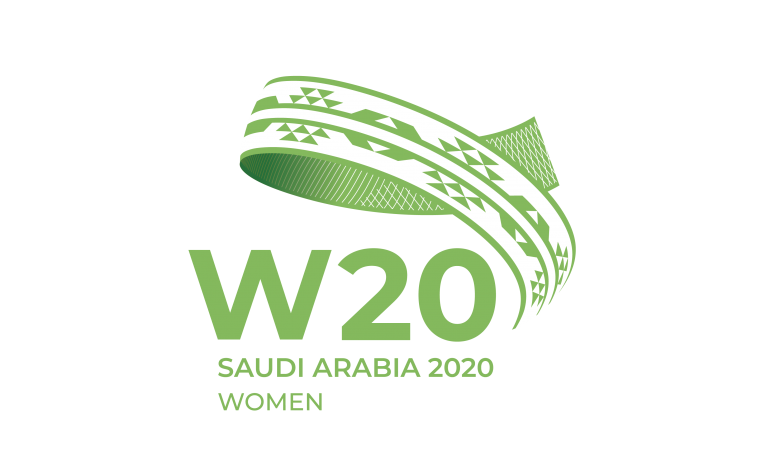If Not Now, When? A Roadmap Towards a More Gender-equitable Economic Recovery
W20 report in partnership with Accenture provides key findings and recommendations

RIYADH – ![]() :
:
The disproportionate impact of the COVID-19 crisis on women may have added as many as 51 years to the time it will take to reach gender equality if immediate action is not taken, according to a report released today by the Women 20 (W20) in partnership with Accenture (NYSE: ACN), one of the W20 knowledge partners. The W20 is a non-government affiliated policy recommendation engagement group of the G20, the W20 is focused on gender equality and women’s economic empowerment.
After the World Health Organization declared a global pandemic on 11 March, 2020, and as governments began establishing task forces to respond to the virus, women’s voices were largely missing, despite the fact that women constitute the majority of frontline health and social care workers and continue to shoulder a greater burden of unpaid care work within their families and communities. When the global pandemic was declared, the world should have turned its attention to those disproportionately affected, women, but, instead, they were left to bear the brunt of a multidimensional crisis.
This report, If Not Now, When? A Roadmap Towards a More Gender-equitable Economic Recovery, provides a series of recommendations to address the growing gender inequities and ensure an equitable economic recovery. Full commitment to these recommendations would accelerate progress and help to offset the impacts of the pandemic, with gender equality achieved as soon as 2061.
“COVID-19 and the subsequent economic shock has highlighted pre-existing inequalities and deep-seated vulnerabilities in social, political, and economic systems across the world,” said Dr Thoraya Obaid, W20 Chair – Saudi Arabia 2020. “But the scale and depth of the crisis on women’s lives offers an opportunity for the G20 leaders to reset their economies based on the full and equitable participation of women. A failure to act could slow the path to gender equality by more than 50 years. But the full commitment of G20 leaders to our recommendations would see us win this back—and more.”
Gianmario Pisanu, managing director and Accenture Consulting lead in the Middle East, said: “We stand at the crest of an unparalleled opportunity to expedite the recognition of women as agents of social recovery and resilience. The time to act is now. At Accenture, in our efforts to create a culture of equality, we know that when a strong, equal workforce culture is prioritized, organizations unlock greater innovation and growth —and as a result, everyone benefits.”
Produced in collaboration with Accenture Research and Quilt.AI, the report draws on a survey of 7,000 adults in seven countries conducted in August 2020, and online analytics comparing discussion of gender equality between 2019 and 2020 with a focus on ten different areas including health, education, employment, and digital inclusion. The findings confirm that the pandemic has had a negative impact on most people, but women have consistently been hit harder across countries, age groups, and lifestyle indicators. Key findings include:
- Women have seen their earnings decline almost two thirds more sharply than men, dropping by 16.5 percent on average since the pandemic began, compared with a drop of 10.1 percent for men
- Mothers are spending an additional one hour and 20 minutes per day on childcare – an increase of 29 percent
- The proportion of women with easy access to healthcare, including maternal and reproductive services, has dropped by more than half – from 69 percent pre-pandemic to just 32 percent
- Half of women say levels of tension and stress in their household are high, up from just 15 percent pre-pandemic
- More than two-in-five female respondents (42 percent) believe their government has failed to account for the impact of COVID-19 on women
- Online analytics show a 7 percent increase in discussion of gender equality issues between 2019 and 2020
Gender gaps have widened over recent months and, if left unchecked, these gaps would likely lengthen the time it would take to reach gender equality. However, the analysis shows that if G20 leaders fully commit to the W20 recommendations, presented in the Communiqué which was delivered at the W20 summit last month, then the road to gender equality could be significantly shortened.
Method: 7,005 people were surveyed in August 2020 across seven countries: Brazil, India, Japan, Saudi Arabia, South Africa, United Kingdom, and the United States. In each country, at least 1,000 adults, 700 of which were women, were surveyed. The survey was fielded online, in respondents’ local languages and took approximately 15 minutes to complete.
The scenario modelling is based on a COVID-19 Impact Index that was built using the survey responses, as well as the World Economic Forum Gender Gap Report 2020 to provide a baseline of the timeline to gender equality.
The online analytics compares web, social, and search data activity on gender equality issues in 2019 versus 2020.




